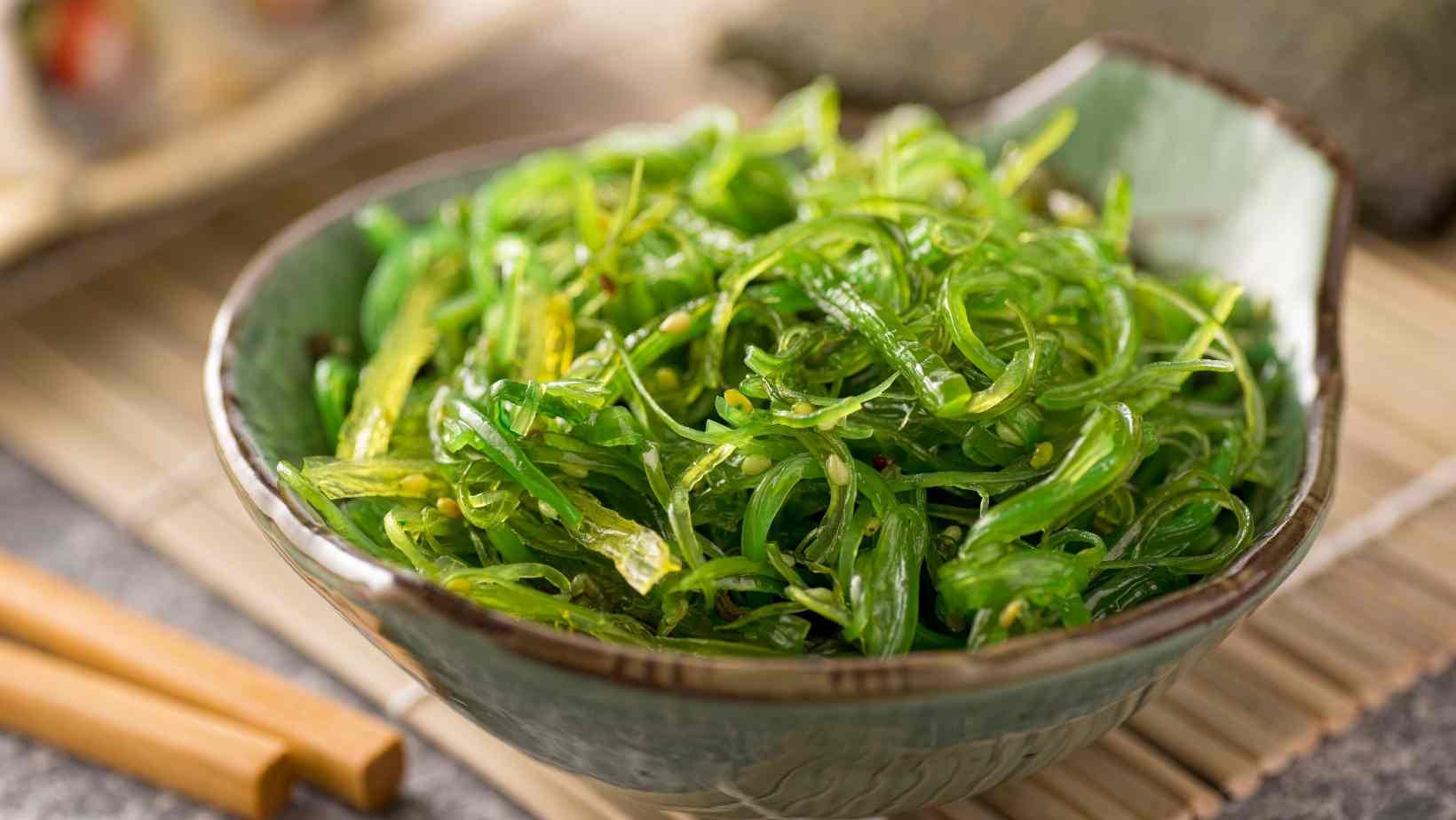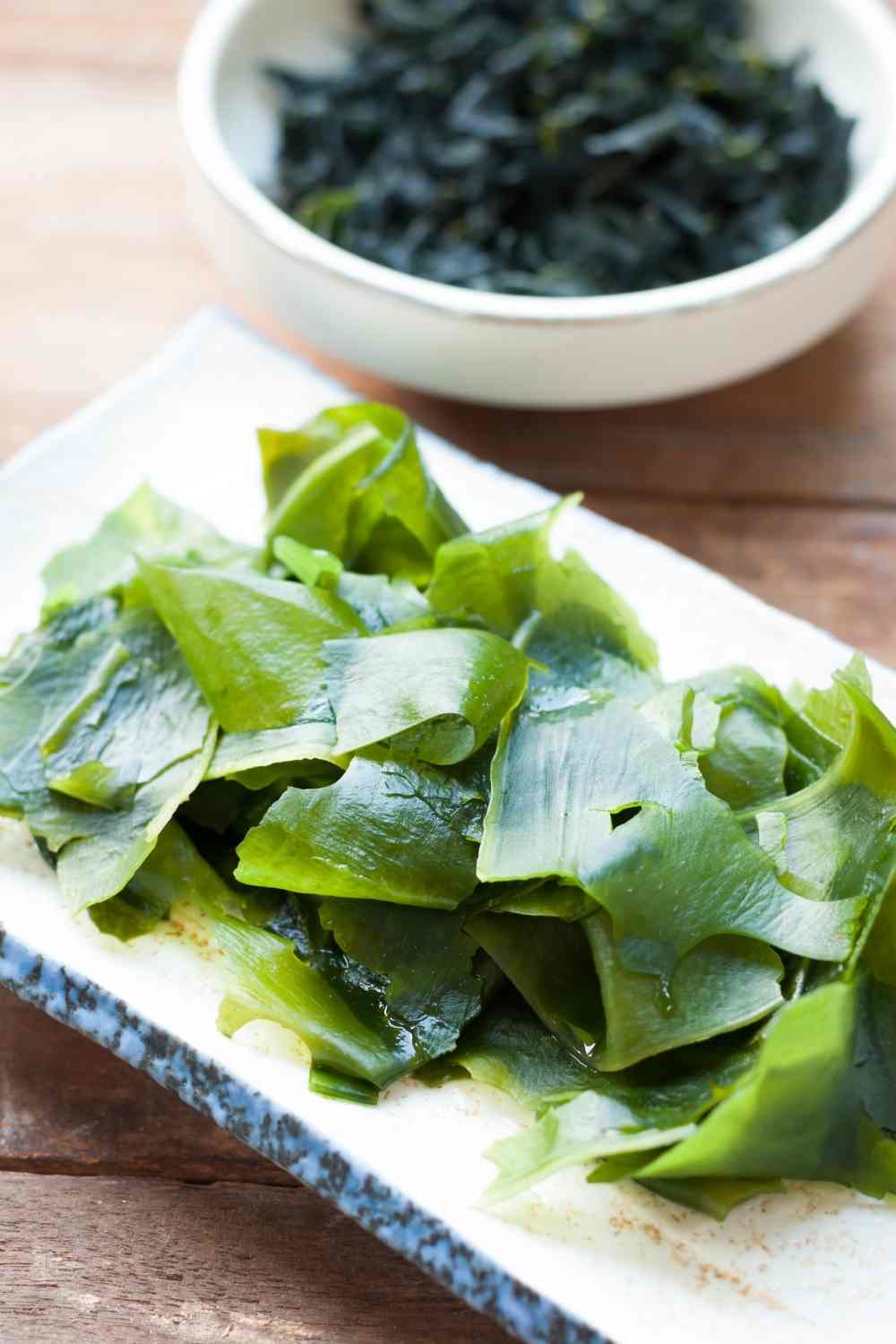Seaweed refers to a wide range of sea vegetables, including algae and marine plants. Seaweed has been used for thousands of years, most notably in Asian cuisine, especially in Japan, Korea, and China, despite its current superfood reputation.
Seaweed is reported to have approximately 10,000 species, demonstrating its enormous variety in flavour and nutritional value. Nori is the most common seaweed, which is dried in sheets and frequently used in sushi. Dulse, arame, wakame, kelp, and spirulina are some of the most frequent kinds.

Seaweed may be eaten raw, dried, cooked, or as a powder.
Nutritional advantages
A serving of nori (dry) weighing 5 grammes includes approximately:
- 7 kilocalories / 29 kilojoules
- 1.5 grammes of protein
- 0.1 gramme fat
- Fibre 3 g
- Calcium 22mg
- Iron 0.98mg
- Zinc 0.32mg
- 73.5mcg Iodine
- 1.4 micrograms of vitamin B12
The nutritional value of seaweed varies based on the species, geographical region, harvest season, and how the seaweed is kept and processed. Red and green types, for example, contain more protein than brown variants, although the latter is higher in the mineral iodine. Minerals, particularly calcium, iron, zinc, and iodine, are present in all forms.
The top five health benefits of Seaweed
Jump to:
1. May be beneficial to thyroid health
Our thyroid gland is in charge of producing hormones that regulate our development, energy, reproduction, and repair. The thyroid requires a number of substances to do this, one of which is iodine, and another is the amino acid tyrosine. Both of these nutrients may be present in seaweed, however, the amount varies depending on the kind and how it's kept and processed.
2. It may help with heart health
Seaweeds may be utilised to help decrease blood pressure and boost heart health, according to a review of 100 research published in the American Journal of Agricultural and Food Chemistry in 2011. High quantities of soluble fibre, as well as heart-healthy nutrients like omega-3 fatty acids, contribute to these advantages.
3. It could help with intestinal health
Dietary fibre is abundant in seaweed, accounting for 25-75% of its dry weight. Much of this fibre comes in the form of polysaccharides, which humans can't digest but which our gut bacteria can. As a result, the fibre functions as a prebiotic, providing food for our good gut bacteria. As a result, it aids in the creation of a favourable environment in the gut, boosting the microorganisms that provide us with additional advantages. These gut microorganisms have a role in shaping our immune response, among other things, by producing helpful molecules called short chain fatty acids.
Surprisingly, the efficiency with which our gut microorganisms break down these polysaccharides may be influenced by our DNA, which explains why certain cultures are better at optimising their effects.
4. It may help with immunological function
According to certain research, chemicals found in seaweed may lower viral load, shorten the duration of a cold, and minimise the risk of a subsequent illness. Recent research has looked at the use of seaweed as a tool in the fight against Covid-19 (SARS-COV- 2).

ACE inhibitory peptides, antioxidants like fucoxanthin (found in types like wakame), prebiotic fibres, and vitamin D and B12 supplements are all regarded to be beneficial in this area. These ingredients have anti-inflammatory and antiviral effects, among other things.
5. It's possible that it'll help to keep blood sugar levels in check
According to research, eating seaweed in a healthy, balanced diet may help regulate blood sugar levels and lower the risk of type 2 diabetes. This is due in part to molecules like fucoxanthin, a carotenoid that helps to lower insulin resistance and improve blood sugar management. Seaweed's high fibre content also aids digestion by slowing the rate of digestion.
Is it safe to eat seaweed?
Seaweed is particularly good for individuals who follow a vegan or mostly plant-based diet since it is high in mineral iodine. However, although the iodine concentration makes seaweed healthy for thyroid health, too much may be harmful. Iodine concentration varies across seaweeds, with certain types, such as kelp, providing larger levels. As a result, the British Dietetic Association advises against eating seaweed more than thrice a week, particularly during pregnancy.
If you're taking blood thinners like warfarin, your doctor or dietician may recommend that you keep track of the vitamin K-rich foods in your diet, such as seaweed, to make sure you're getting the same amount of vitamin K every day. Another component found in abundance in seaweed is potassium; many medications operate by increasing potassium levels in the blood; if you are taking such medicine, you should avoid eating foods high in potassium, such as seaweed.
As a result of its ability to absorb and retain large quantities of minerals, seaweed may collect harmful heavy metals such as cadmium, mercury, aluminium, and lead. Check the source of the seaweed you purchase to make sure it's organic and from clean seas if at all feasible.




